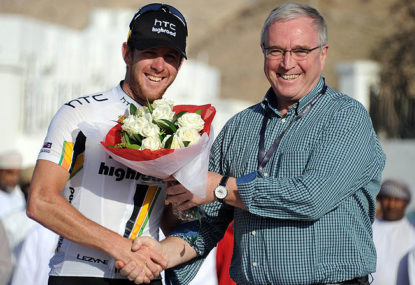'I've just won a stage of the Tour de France, mate!': Hindley grabs yellow jersey as Aussie blows Tour apart
Australia's Jai Hindley has said he is "lost for words" after a shock stage victory at the Tour de France earned him the leader's…

Friday September 27 is destined to be one of the most important days in cycling’s modern history.
While we enjoy what is already a magnificent World Championships in Florence, for a number of teams – particularly some men’s World Tour and Pro-continental teams – they may not have a team to return to when the final Rainbow jersey is handed out.
Euskaltel-Eusakdi, Vacansoleil and Sojasun will all reportedly fold after their respective owners failed to negotiate new sponsorship deals for 2014 ahead of next week’s UCI official rider notification deadline.
The UCI say that teams must inform existing riders on the squad whether they will be offered a job or not for the following year. If not they are free to look for other teams.
The World Tour has created a lot of benefits for cycling, but too often the riders find themselves jettisoned at the most unfortunate of times as sponsors come and go with monotonous regularity.
The whole contractual side of the process needs to be overhauled but this is just one issue facing Pat McQuaid and Brian Cookson the two candidates for the next four-year term as UCI boss.
Sadly, sports fans tend to be cynical of any most international governing bodies these days given what we’ve seen with “the jobs for the boys mentality” that exists within organisations like FIFA and the IOC.
And for the past few years it seems the UCI has not rally shown that it is any different.
Pat McQuaid may have overseen significant reform in the sport in his eight-years as UCI President but at the same time there are many dark shadows from cycling’s murky past that continue to follow him.
And no matter what he says, there’s no way McQuaid will be able to shake them.
The 42 delegates who gather in Florence must have this thought front and centre in their minds when it comes to making their secret vote.
Just 22 votes are needed for either Cookson or McQuaid to claim the top job and already it seems that McQuaid has lost a number of them.
The European votes looks likely to go with Cookson, whose chances were boosted recently when McQuaid lost the support of his two “home” federations Ireland and Switzerland.
Cookson also has secured the Australia’s vote.
McQuaid insists he has the votes required from all five continents, even though there are some who question whether his nomination is valid given he lacks the support of his home federation.
It is hard to ignore many of the initiatives that McQuaid has introduced since he assumed the presidency in 2005, and there’s no doubt the sport is a lot healthier because of things like the biological passport, and the evolution of the Pro Tour/World Tour calendar.
McQuaid is also right in his statements that the battle to rid cycling of a doping culture that goes back decades is far from over.
”I don’t think we’re quite there yet. It is now possible to win races clean. To actually completely change the culture it’s going to take a little longer and some other measures than just testing athletes,” McQuaid said.
”I would like to see that through… Then I would happily walk away and say that I’ve achieved something for the sport of cycling.”
Of course, where McQuaid could have made a real serious case for a third term as UCI President is how he dealt with Lance Armstrong both during his career and after the handing down of USADA’s Reasoned Decision.
Why did he publicly “ignore” so much of what was being reported between 1999 and 2005 and then, years later, choose to publicly discredit Floyd Landis and others who testified against Armstrong as part of the USADA investigation?
McQuaid’s links with his predecessor Hein Verbruggen were never more evident during this time and as you may have read in Jonathan Vaughter’s brutal assessment of the UCI presidency campaign, “Pat McQuaid didn’t run the UCI, Hein wore the pants.”
Describing him as someone who doesn’t listen, is not good at delegating, is not a great communicator and is therefore not an “effective leader” doesn’t bode well for McQuaid, even though Vaughter’s journey through cycling’s dark years have not exactly left him unscarred.
On the other hand, Brian Cookson seems to have remarkably few scars.
Currently riding the wave of success that is Britain’s remarkable rise from relative cycling backwater to back-to-back Tour de France winning nation, inside a decade is some achievement.
If Cookson can bring that blueprint and those apparent leadership skills to the world stage then the choice seems a clear one.
Both men have talked about cycling needing to be a transparent sport.
Cookson says a truth and reconciliation commission can help achieve that, as can more collaboration, collegiality and less confrontation between the UCI and teams over issues like race radios and developing the cycling calendar.
No doubt in his own mind, McQuaid is also convinced his continued presence at the top of the sport will allow him to complete his agenda but there’s little doubt many others in cycling feel differently.
So Pat, it’s time to go.
You’ve had eight years in the job. Thanks for what you’ve done, but we need to draw a line under the Armstrong years and even though you weren’t there when it was all happening, you never really distanced yourself from the people who were.
Let’s hope that 22 other delegates feel the same way.